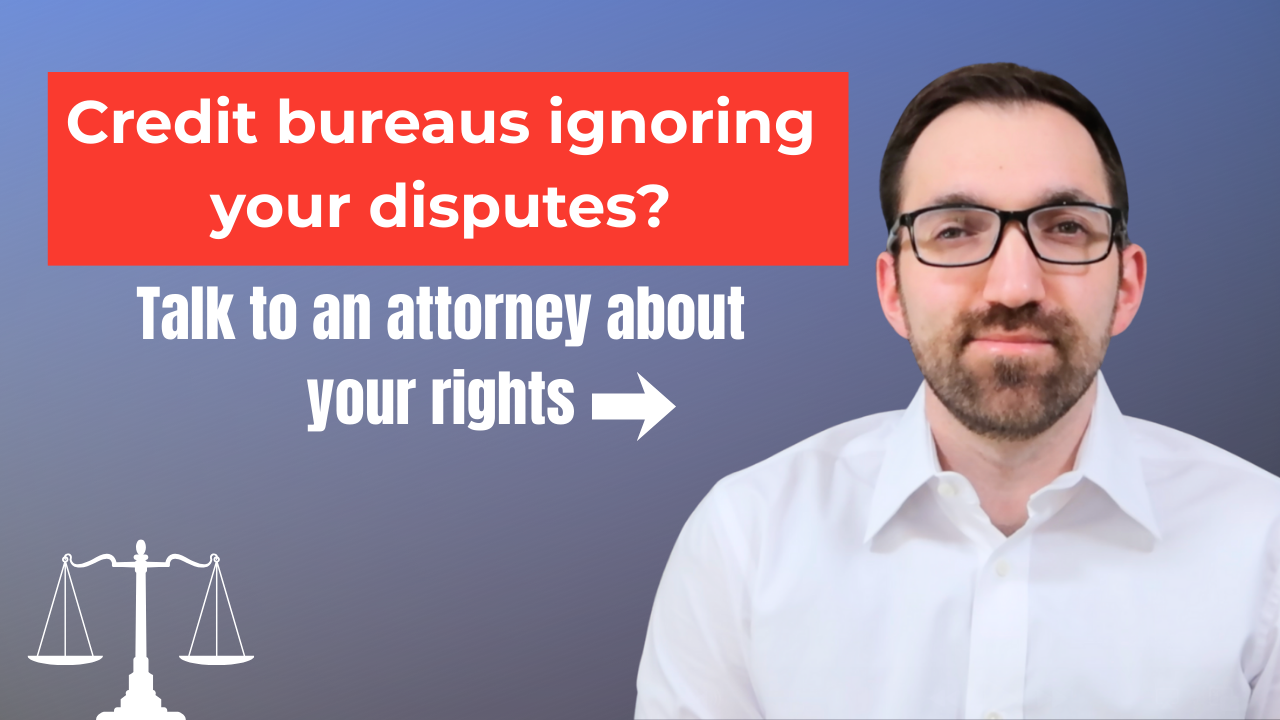Does Disputing Hurt Your Credit? Here’s the Truth.
If you’ve found a mistake on your credit report, your first step should be to dispute the error with the credit bureaus. This is a right guaranteed to you under the Fair Credit Reporting Act (FCRA).
But with so many things that can impact your credit, it’s understandable to wonder: Could sending a dispute somehow lower your score?
After over a decade of helping consumers fix credit report errors, I can confidently clear up the confusion. In this article, I’ll answer this common question and share insights that can help you navigate the dispute process wisely.
What Does It Mean to Dispute Something on Your Credit Report?
A dispute is a term of art under the FCRA. It allows consumers to challenge information on their credit report that they believe is inaccurate, incomplete or outdated.
Disputes are typically submitted to the three main credit bureaus – Experian, Equifax and Trans Union. Although not required by law, a dispute can also be submitted to the creditor that is reporting the inaccurate information to the credit bureau (banks, lenders, debt buyers, etc.).
Once a dispute is submitted, the credit bureaus have 30 days to correct the inaccuracy. If they don’t make the correction, a consumer can sue the credit bureau and creditor that are still reporting the inaccuracy.
Does Disputing Hurt Your Credit?
The short answer is no but there is nuance to be aware of.
Submitting a dispute to the credit bureaus does not hurt your credit score. This is supported by all the major players in the credit industry. For example, the Consumer Financial Protection Bureau (CFPB) explains that “a credit bureau generally will not use [a disputed debt] to calculate credit scores until the investigation is completed.” View the CFPB’s explanation here.
However, some lenders—especially mortgage companies—may delay loan approvals while a dispute is pending. I've seen this firsthand when clients filed disputes during the mortgage process and were told by their broker that the loan couldn’t proceed until the dispute was resolved.
Can disputing hurt your credit score temporarily?
No, disputing information on your credit report will not affect your credit score, even temporarily. The dispute itself won’t affect your score—but if the dispute leads to inaccurate negative information being corrected or removed, your score will likely improve.
Most people likely dispute negative items on their credit report, not positive ones. If inaccurate and negative items are removed or corrected, this will have a positive impact on your credit score.
Experian, one of the three major credit bureaus, confirms this in a 2023 article stating: “Disputing credit report inaccuracies doesn’t affect your credit, but some changes made in response to disputes can help your credit scores.”
Does a Dispute Hurt Your Credit in Any Situation?
During law school, attorneys are trained to never speak in absolutes. After practicing for over 11 years, I now understand why. Polices change. New laws are enacted. Just because something is true at the time I’m writing this article (2025) doesn’t mean it will be in 5 or 10 years.
Based on all the current authoritative sources, submitting a dispute does not affect your credit in any way. I can also attest to this after submitting disputes on behalf of thousands of consumers.
But it’s important to note that this is not usually the main concern for most people. Beside the minority that obsess over their credit scores, most of us only care about our credit scores when we are in the market for a new home, car or some other extension of credit.
So the relevant question isn’t really whether a dispute will negatively impact your credit score but whether it will impact you getting your new home, car or whatever else. And in some situations, it can.
As discussed previously, some lenders won’t approve a mortgage until a dispute period is over. This is why I tell my clients to take a more holistic approach to the dispute process. If there is slightly negative information on their credit report but they are applying for a loan within weeks, it might be wise to hold off on the dispute.
What is the main goal?
If it’s to get approved for a mortgage to purchase your dream home, it might make more sense to first get some clarity from the broker on what you need to do to get approved.
For some lenders, a couple of extra points on your credit score might not affect your application, but an active dispute might. Even if it doesn’t directly impact your credit score.
Final Thoughts: Dispute Errors Wisely
Most of the time, disputing inaccurate negative information on your credit report is a smart decision. Who wants errors on their credit reports? Especially if they hurt your credit score.
But every person’s situation is different. It’s important to zoom out and look at the big picture. What are you trying to accomplish? A 5-point increase in your credit score won’t matter much if it means missing out on the perfect home for your family.”
This can be a challenging and complex problem to navigate on your own. If you’re looking for support in deciding whether to dispute information on your credit report or how to do it properly, Reznik Consumer Law is here to help.




